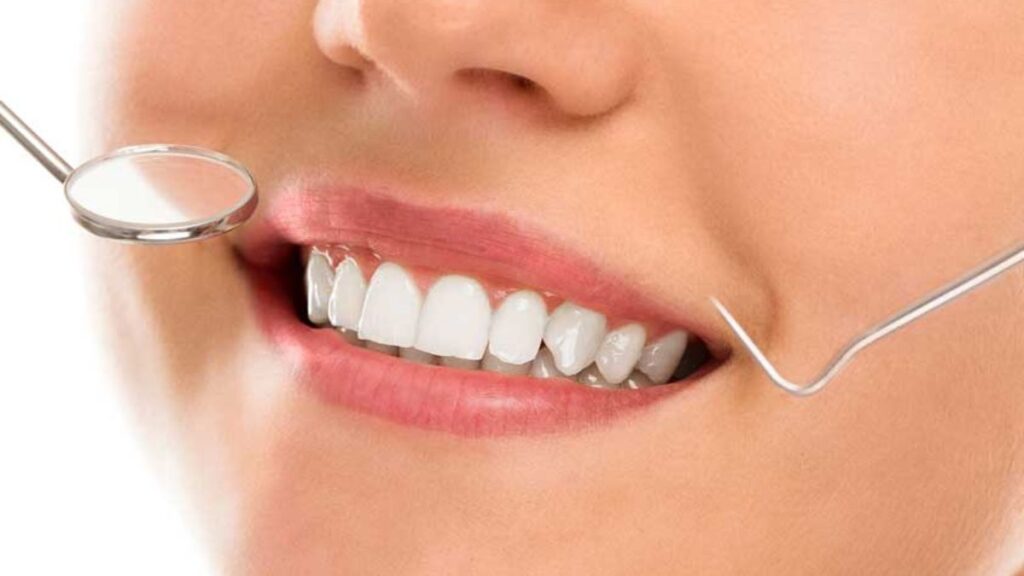Missing teeth affect more than just your appearance—they impact eating, speaking, and confidence. Over 120 million Americans are missing at least one tooth, but modern dentistry offers advanced solutions beyond traditional dentures. With natural-looking, permanent options, restoring your smile can improve your oral health, confidence, and overall quality of life.
Understanding the Importance of a Complete Smile
Your teeth work as a team. When one or more are missing, the remaining teeth bear additional stress and may shift out of position. This creates a domino effect that can compromise your entire bite structure over time.
From a functional standpoint, missing teeth make everyday activities challenging. Chewing becomes difficult, forcing you to avoid certain foods that are essential for proper nutrition. Speaking clearly becomes harder, as teeth play a crucial role in forming certain sounds. Many people with missing teeth develop a lisp or find themselves mumbling to hide the gaps.
The psychological impact runs even deeper. A study published in the Journal of Oral Rehabilitation found that people with missing teeth often experience decreased self-esteem and social anxiety. They smile less, laugh more cautiously, and may avoid social situations altogether. This withdrawal can affect personal relationships and professional opportunities.
Missing teeth also accelerate facial aging. Without tooth roots to stimulate the jawbone, bone tissue begins to deteriorate. This process, called resorption, causes the face to collapse inward, creating a sunken appearance that adds years to your look.
Exploring Options for Completing Your Smile
When facing tooth loss, you have several replacement options. Traditional solutions like removable dentures and fixed bridges have served patients for decades, but they come with significant limitations.
Dentures, while affordable initially, often slip and cause discomfort. They require daily removal for cleaning and may need frequent adjustments as your mouth changes shape. Many denture wearers struggle with certain foods and feel self-conscious about their appliances moving while they speak.
Bridges involve grinding down healthy adjacent teeth to support the replacement tooth. While this creates a fixed solution, it sacrifices healthy tooth structure and makes cleaning more challenging. Bridges typically need replacement every 10-15 years.
Dental implants represent the most advanced approach to tooth replacement. Unlike other solutions that sit on top of your gums, implants replace the entire tooth structure, including the root. This comprehensive approach addresses both the visible crown and the underlying support system.
Dental Implants: A Modern Solution
A dental implant consists of three components: a titanium post that serves as an artificial root, an abutment that connects the post to the crown, and a custom-made crown that matches your natural teeth. The titanium post integrates with your jawbone through a process called osseointegration, creating a permanent foundation for your replacement tooth.
This integration process is what sets implants apart from other tooth replacement options. The titanium post actually stimulates bone growth, preventing the bone loss that occurs with missing teeth. Over time, the implant becomes part of your jawbone structure, providing stability that rivals your natural teeth.
Modern implants boast success rates exceeding 95% when placed by qualified professionals. They can last a lifetime with proper care, making them an excellent long-term investment in your oral health. The crowns attached to implants are crafted from advanced ceramics that match the color, translucency, and texture of your natural teeth.
The Dental Implant Procedure
The implant process typically unfolds over several months, allowing for proper healing and integration at each stage. Understanding this timeline helps set realistic expectations and reduces anxiety about the procedure.
Your journey begins with a comprehensive evaluation. Your dentist will assess your bone density, gum health, and overall medical condition to determine if you’re a good candidate for implants. Advanced imaging technology, including 3D cone beam scans, provides detailed views of your jawbone structure and helps plan optimal implant placement.
During the surgical phase, the titanium post is precisely placed into your jawbone. This procedure is typically performed under local anesthesia, and many patients report less discomfort than they expected. The surgical site is then allowed to heal for 3-6 months while osseointegration occurs.
Once integration is complete, a small connector piece called an abutment is attached to the implant. Finally, your custom crown is secured to the abutment, completing your new tooth. The entire process, while lengthy, ensures the strongest possible foundation for your replacement tooth.
For those seeking teeth replacement like those in Honolulu, the procedure follows the same careful protocols regardless of location, ensuring consistent, high-quality results.
Benefits of Choosing Dental Implants
The advantages of dental implants extend far beyond their natural appearance. Unlike dentures, implants never slip or cause embarrassing moments during conversations or meals. You can eat all your favorite foods without worry, maintaining a varied and nutritious diet.
From a financial perspective, implants often prove more cost-effective over time. While the initial investment is higher than other options, their longevity eliminates the ongoing costs associated with denture adjustments, bridge replacements, and related complications.
Oral hygiene remains straightforward with implants. You brush and floss them just like natural teeth, without the need for special cleaning solutions or nightly removal routines. This simplicity encourages better oral health habits and reduces the risk of gum disease.
Perhaps most importantly, implants preserve your facial structure by maintaining bone density. This prevents the premature aging associated with tooth loss and keeps your smile looking youthful for years to come.
Who is a Good Candidate for Dental Implants?
Most healthy adults can receive dental implants, but certain factors influence success rates. Adequate bone density is essential for implant stability. If bone loss has occurred, bone grafting procedures can often restore the necessary foundation.
Chronic conditions like diabetes or heart disease don’t automatically disqualify you from implants, but they require careful management. Your dentist will coordinate with your physician to ensure your overall health supports successful healing.
Lifestyle factors also matter. Smoking significantly reduces implant success rates by impairing healing and increasing infection risk. Heavy alcohol use can similarly compromise outcomes. Your commitment to excellent oral hygiene is crucial for long-term implant health.
Age is rarely a barrier to implant treatment. Many patients in their 70s and 80s successfully receive implants and enjoy improved quality of life. The key is overall health rather than chronological age.
Debunking Common Myths About Dental Implants
Many misconceptions surround dental implant treatment, often preventing people from exploring this excellent option. The most common concern involves pain during and after the procedure. In reality, most patients report that implant placement is less uncomfortable than tooth extraction.
Modern pain management techniques and sedation options make the procedure comfortable for even anxious patients. Post-operative discomfort is typically mild and well-controlled with over-the-counter medications.
Cost concerns are understandable, but implants often provide better value than alternatives when you consider their longevity. Many dental insurance plans now cover a portion of implant treatment, and financing options make treatment more accessible.
Some people worry that implants are too complex or risky. While implant placement does require surgical expertise, it’s become a routine procedure for qualified dental professionals. The technology and techniques have been refined over decades of use.
Conclusion
Dental implants provide a permanent, natural-looking solution for missing teeth, restoring function, confidence, and protecting oral health. Consult a dental professional to explore how implants can transform your smile and enhance your quality of life.






